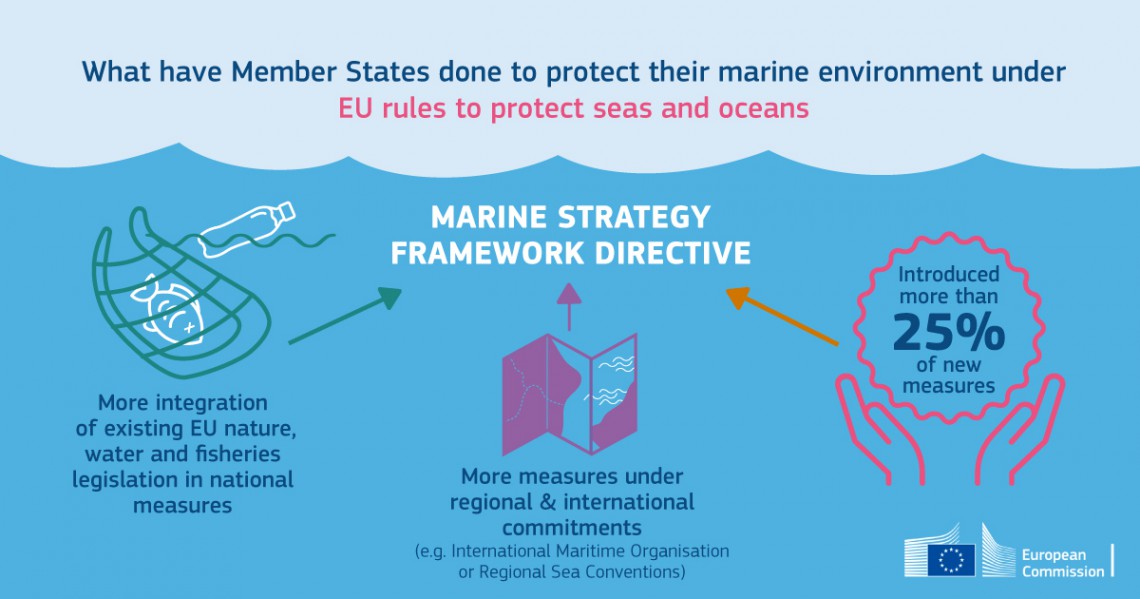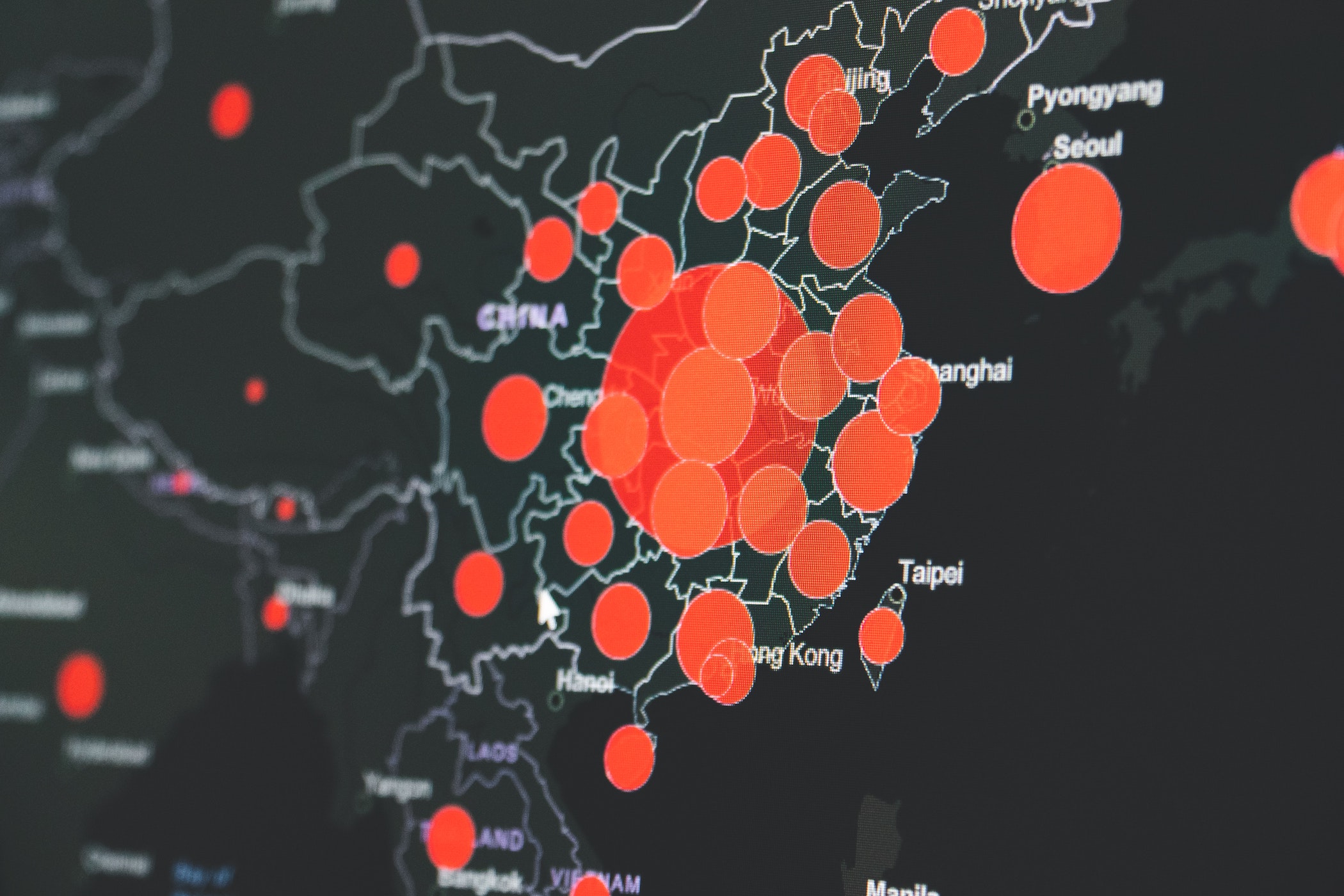Source: European Commission press release
The European Commission recently published a report on the implementation of the EU Marine Strategy Framework Directive assessing the measures put in place by EU Member States* to achieve “good environmental status” by 2020. This concept is defined by measures conserving biodiversity and tackling pressures like overfishing, seabed damage, marine litter and contaminants.
Enlarge

European Commission infographic
Karmenu Vella, Commissioner for Environment, Maritime Affairs and Fisheries, said: “oceans and seas are essential to the well-being of our planet, and we cannot compromise on their protection. This is why the EU has one of the most ambitious marine environment policies in the world. Over the last years, Member States have put a lot of effort to ensure that the seas’ resources are used and managed sustainably, relying a lot on regional cooperation. Unfortunately, despite these efforts, the measures taken so far are not yet sufficient to achieve good, healthy and productive seas by 2020. I therefore urge Member States to take heed of the recommendations made by the Commission to move a step closer to achieving this goal.”
The programmes of measures set up by Member States under the Marine Strategy Framework Directive are the last step of 6-year strategies. In their programmes of measures Member States have relied on regional cooperation more than ever before, and integrated different national, EU and international policies. For example to fight overfishing and reduce the negative impacts of fishing, Member States have reported measures taken under the EU Common Fisheries Policy, in regional and international agreements, as well as new measures, such as introducing the use of specific and less damaging fishing gear.
One in four measures announced by Member States has been developed specifically for the purposes of this Directive to target pressures on the marine environment that would otherwise not be covered. Nevertheless, the assessment shows that the goal of “good environmental status” of European marine waters by 2020 will not be achieved without further improvements. In some cases, such as marine litter, where Member States lacked coordinated measures, this shortcoming is partly addressed at EU level, through the EU’s Strategy on plastics and its subsequent actions.
In the report and its annex the Commission makes a number of general and specific recommendations to Member States, guiding them on next steps.
* This report does not cover all EU Member States due to late reporting.
Background
The Marine Strategy Framework Directive provides an ambitious and holistic framework to protect the EU’s seas and oceans, and ensure that their resources are managed sustainably.
EU Member States are required to set up six-year strategies through which they assess the status of their marine waters; determine “good environmental status” on the basis of 11 descriptors (such as biodiversity, commercial fish stocks, marine litter and sea-floor integrity); set environmental targets, develop and implement monitoring programmes; and finally develop and implement measures to achieve this good environmental status objective.
The framework relies on the ecosystem approach to the management of human activities that have an impact on the marine environment, integrating the concepts of environmental protection and sustainable use. Impacts on the marine environment cross national borders, and this is why this framework requires Member States to work together in a regional context, ensuring coherence in the actions that are being taken by Member States. EU Member States therefore often work together with the Regional Sea Conventions covering the marine waters of EU Member States.
Read more:
Facsheet: Questions and answers on EU Member States’ programmes of measures under the Marine Strategy Framework Directive
Questions and answers on the Commission’s report assessing EU Member States’ programmes of measures under the Marine Strategy Framework Directive
The European Commission press release.
Other sources:
Commission Report on the implementation of Member States’ MSFD programmes of measures.
Staff Working Document – Annex accompanying the Commission report containing country-specific recommendations.






